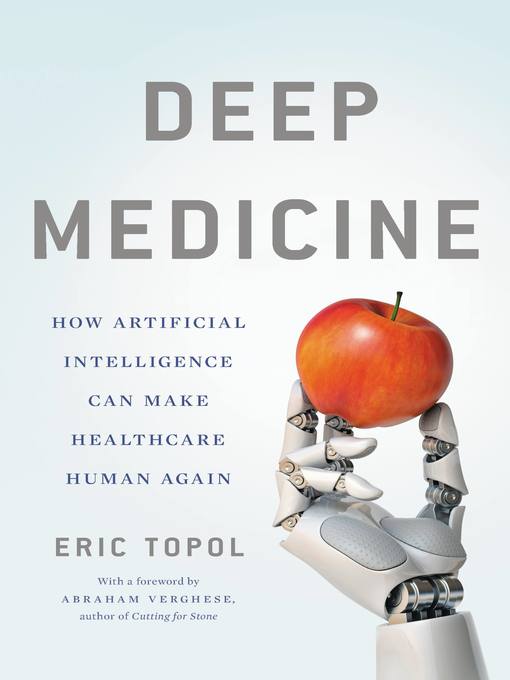-
Description
-
Details
-
Reviews
One of America's top doctors reveals how AI will empower physicians and revolutionize patient care
Medicine has become inhuman, to disastrous effect. The doctor-patient relationship—the heart of medicine—is broken: doctors are too distracted and overwhelmed to truly connect with their patients, and medical errors and misdiagnoses abound. In Deep Medicine, leading physician Eric Topol reveals how artificial intelligence can help. AI has the potential to transform everything doctors do, from notetaking and medical scans to diagnosis and treatment, greatly cutting down the cost of medicine and reducing human mortality. By freeing physicians from the tasks that interfere with human connection, AI will create space for the real healing that takes place between a doctor who can listen and a patient who needs to be heard.
Innovative, provocative, and hopeful, Deep Medicine shows us how the awesome power of AI can make medicine better, for all the humans involved.

Kindle Book
- Release date: March 12, 2019
OverDrive Read
- ISBN: 9781541644649
- Release date: March 12, 2019
EPUB ebook
- ISBN: 9781541644649
- File size: 14436 KB
- Release date: March 12, 2019

Loading
Formats
Kindle Book
OverDrive Read
EPUB ebook
Languages
English
